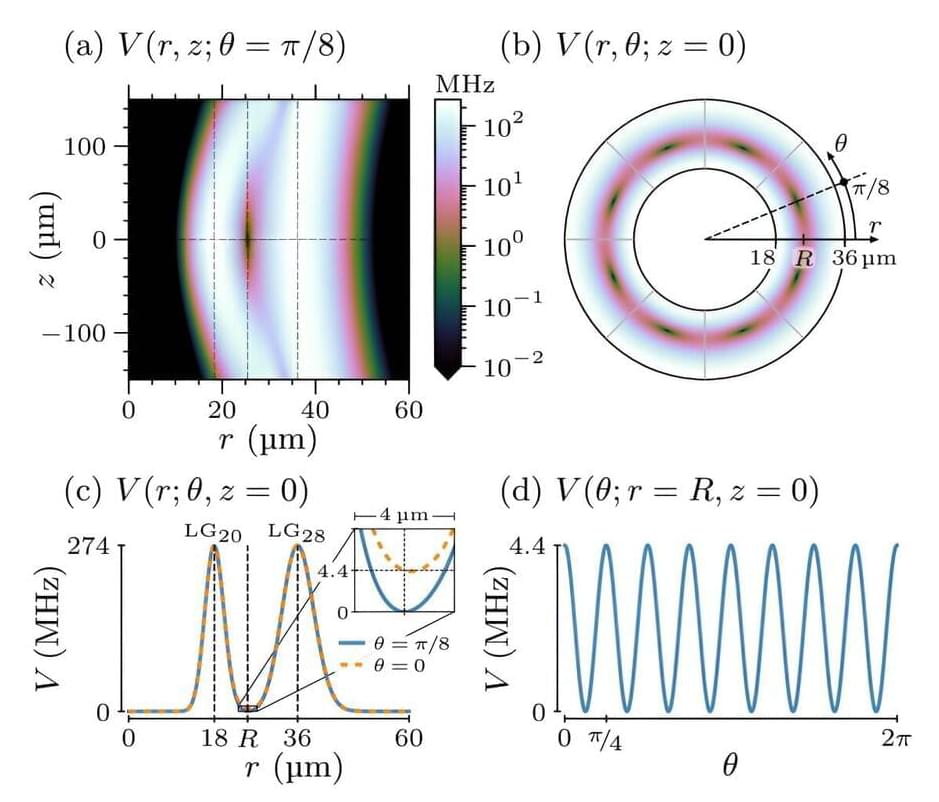
Most of the current atom interferometers are large instruments, occupying buildings and requiring towers that can reach tens of meters in height. Now, University of Michigan physicists have developed a design for a quantum rotation sensor with a core size that is barely visible to the human eye.
The proof-of-concept design could help bring atom interferometer-based quantum sensors out of the laboratory and into the world, according to lead author and U-M doctoral student Bineet Dash.
Scientists could use atom interferometers in quests ranging from the continual hunt for the tiny ripples in the fabric of our universe caused by gravitational waves to understanding minute, localized changes in Earth’s gravity caused by melting ice sheets in Antarctica, Dash says. But because of their size, atom interferometers are typically bound to laboratory settings. Currently, the most sensitive atom interferometers use tall towers inside buildings to shoot beams of atoms across tens of meters to gather information.


















